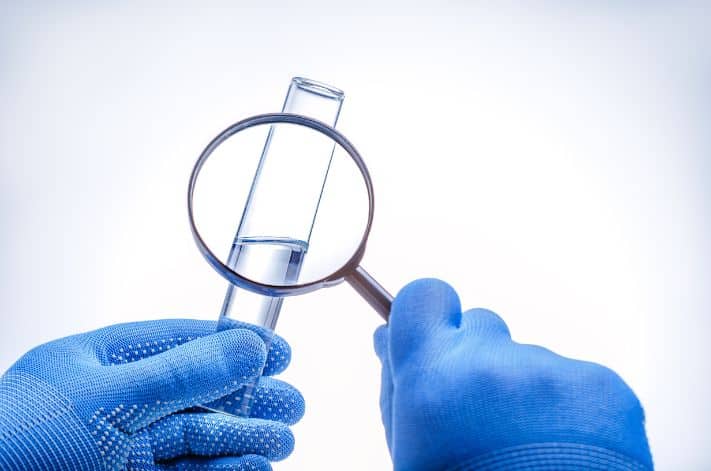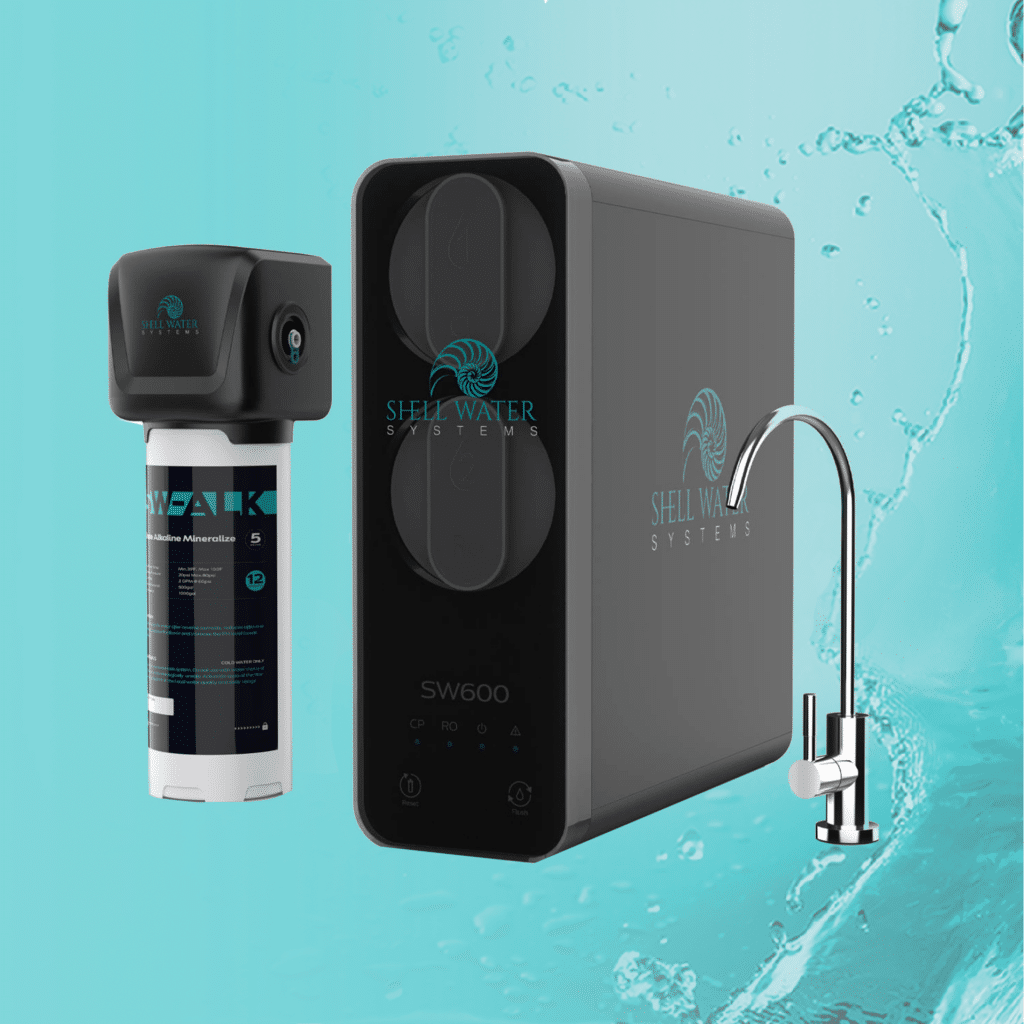Hydration is a cornerstone of health, affecting everything from physical performance to cognitive function. Yet, one of the most common questions we encounter is, “How much water should I drink a day?” The answer, while seemingly straightforward, is nuanced, reflecting individual health goals, lifestyle choices, and even the environment. Here at ShellWaterSystems.com, we’re committed to helping you understand and achieve optimal hydration for your well-being.
How Much Water Should You Drink? Here a full guide to hydration optimization
Understanding Hydration: Why Water Matters
Water is essential for life. It plays a critical role in regulating body temperature, keeping joints lubricated, preventing infections, delivering nutrients to cells, and keeping organs functioning properly. Being well-hydrated also improves sleep quality, cognition, and mood.
The following are specific ways your body is affected by hydration:
Supports Vital Bodily Functions: Water is essential for nearly every bodily function, including digestion, absorption, circulation, creation of saliva, transportation of nutrients, and maintenance of body temperature. According to a study published in the Journal of Biological Chemistry, up to 60% of the human adult body is water, underscoring its critical role in physiological processes.
Enhances Physical Performance: Dehydration can severely impair athletic performance, reducing endurance, strength, and reaction times. A review in the Journal of Sports Sciences found that even mild dehydration of around 2% of body weight can impair physical performance in activities that are both anaerobic (short-duration high-intensity) and aerobic (endurance activities).
Boosts Cognitive Function: Hydration status has a significant impact on cognitive performance, including concentration, alertness, and short-term memory. A study in the journal Nutrients highlights that even mild dehydration can impair cognitive functions, affecting mood, concentration, and increasing the perception of task difficulty.
Prevents and Treats Headaches: Dehydration can trigger headaches and migraines in some individuals. Research published in the European Journal of Neurology suggests that water deprivation can lead to headaches, while increasing water intake may help prevent them or reduce their severity.
Aids in Kidney Function and Detoxification: The kidneys regulate fluid balance and filter wastes from the blood. Adequate water intake helps the kidneys to function efficiently and prevents kidney stones by diluting the salts and minerals that cause them. The National Kidney Foundation emphasizes the role of water in preventing kidney stones and urinary tract infections.

Why Water Quality Matters
The quality of the water you drink is just as important as the quantity. High-quality water should be free from contaminants such as bacteria, heavy metals (like lead and mercury), and chemicals (such as chlorine and pesticides) that may pose health risks. Contaminated water can lead to a range of health issues, from gastrointestinal illnesses to neurological disorders and reproductive problems, according to the World Health Organization (WHO).
- Reduces Exposure to Harmful Contaminants: Safe, clean water minimizes exposure to harmful substances that can lead to health problems. The Environmental Protection Agency (EPA) sets standards for drinking water quality in the United States, focusing on minimizing contaminants.
- Improves Taste and Encourages More Consumption: Better-tasting water, free from unpleasant odors or flavors, can encourage increased water intake, helping individuals meet their daily hydration needs.
- Supports Overall Health: Clean water supports overall health by providing safe hydration without the added risk of consuming harmful contaminants that can affect bodily functions and long-term well-being.

How Much Water Do You Really Need?
The familiar adage of “eight 8-ounce glasses of water a day” – totaling about 2 liters or half a gallon – is a good starting point but doesn’t capture the full picture. The National Academies of Sciences, Engineering, and Medicine provides a more nuanced recommendation: about 3.7 liters (or about 125 ounces) per day for men and 2.7 liters (about 91 ounces) per day for women. These totals include fluids from water, beverages like tea and coffee, and food.
Factors That Influence Your Hydration Needs
- Activity Level: The more active you are, the more water you lose through sweat, and the more you’ll need to drink.
- Environment: Hot or humid weather can make you sweat more, as can spending time in heated indoor areas.
- Health Conditions: Certain conditions, such as diabetes or heart disease, as well as medications like diuretics, can affect your water needs.
- Diet: High-salt or high-protein diets, as well as those rich in fiber, can increase your need for water.
- Pregnancy and Breastfeeding: Women who are pregnant or breastfeeding need additional fluids to stay hydrated.
Signs You’re Drinking Enough
Staying adequately hydrated means that you’re drinking enough water to compensate for your daily fluid loss. Signs of good hydration include rarely feeling thirsty and producing colorless or light yellow urine.
Tips for Staying Hydrated
- Keep Water Close: Always have a bottle of water handy, whether you’re at home, at work, or on the go.
- Eat Water-Rich Foods: Fruits and vegetables like cucumbers, oranges, strawberries, and lettuce can boost your hydration.
- Monitor Your Body: Pay attention to signs of dehydration, including thirst, dark urine, fatigue, and dizziness.
- Enhance Your Water: If you find plain water unappealing, try adding a slice of lemon, lime, cucumber, or a few berries to enhance the flavor naturally.
Listen to Your Body
Ultimately, the optimal amount of water to drink daily varies from person to person. Factors like age, sex, weight, health status, and activity level all play a part in determining your specific needs. By paying attention to your body’s signals and making hydration a priority, you can maintain the balance your body craves for optimal health and performance.
When it comes to ensuring the water you drink is of the highest quality, investing in a home reverse osmosis (RO) system from ShellWaterSystems.com stands out as a premier choice. Reverse osmosis is a powerful filtration process that removes contaminants from water by pushing it through a semipermeable membrane, leaving impurities behind. Here’s why a home RO system from ShellWaterSystems.com is an excellent option for securing clean, safe, and great-tasting water.

Superior Filtration Technology
The reverse osmosis systems provided by ShellWaterSystems.com utilizes state-of-the-art filtration technology. This process is capable of removing up to 99% of dissolved salts (ions), particles, colloids, organics, bacteria, and pyrogens from the water. Unlike conventional filtration methods, RO filtration is thorough, ensuring that even the most microscopic contaminants are filtered out.
Wide Range of Contaminant Removal
ShellWaterSystems.com’s RO systems are designed to tackle a broad spectrum of contaminants. This includes common pollutants like chlorine and lead, as well as more challenging ones such as fluoride, nitrates, sulfates, and pharmaceuticals. Given the increasing concern over contaminants in municipal water supplies and well water, having an RO system at home provides peace of mind by ensuring your drinking water is clean and safe.
Improved Taste and Odor
One of the benefits of using a reverse osmosis system from ShellWaterSystems.com is the noticeable improvement in the taste and odor of your water. By removing contaminants that cause unpleasant tastes and smells, RO systems deliver water that is not only safer but also more appealing to drink. This can lead to increased water consumption, supporting better hydration and overall health.
Cost-Effectiveness
Investing in a home RO system from ShellWaterSystems.com can also be cost-effective in the long run. By providing a reliable source of clean water right from your tap, it reduces the need to purchase bottled water, saving money and reducing plastic waste. Furthermore, the systems are designed for efficiency and durability, ensuring that they provide high-quality water for years to come with minimal maintenance costs.
Environmental Impact
Choosing a home RO system is a sustainable choice. Bottled water not only contributes to plastic waste but also has a significant carbon footprint due to production and transportation. By using an RO system, you’re not only ensuring the quality of your drinking water but also making an environmentally friendly choice.
Commitment to Customer Satisfaction
ShellWaterSystems.com is dedicated to customer satisfaction, offering expert installation, thorough after-sales support, and warranties on their RO systems. This commitment ensures that customers can rely on their RO system to provide high-quality water consistently, with the backing of excellent customer service.
In conclusion, ensuring access to clean, safe, and great-tasting water is essential for our health, well-being, and overall quality of life. A home reverse osmosis system from ShellWaterSystems.com offers an unparalleled solution, leveraging advanced filtration technology to remove a wide range of contaminants, improve the taste and odor of water, and provide a cost-effective and environmentally friendly alternative to bottled water.
With the backing of excellent customer service and a commitment to customer satisfaction, investing in a Shell Water Systems RO system is not just an investment in high-quality water, but an investment in the health and future of your family. We encourage you to take the next step towards securing your access to pure, safe drinking water by exploring the benefits of a Shell Water Systems reverse osmosis system today.
Stay hydrated, and remember, your journey to better health through improved hydration starts with understanding your body’s needs and adjusting your water intake accordingly.

References:
Popkin, B.M., D’Anci, K.E., Rosenberg, I.H. (2010). Water, Hydration and Health. Nutrition Reviews, 68(8), 439–458.
Sawka, M.N., Cheuvront, S.N., Carter, R. (2007). Human Water Needs. Nutrition Reviews, 63(s1), S30–S39.
Armstrong, L.E. (2007). Assessing Hydration Status: The Elusive Gold Standard. Journal of the American College of Nutrition, 26(sup5), 575S–584S.
WHO (World Health Organization). (2017). Drinking-water. Retrieved from https://www.who.int/
EPA (Environmental Protection Agency). (2020). Drinking Water Regulations. Retrieved from https://www.epa.gov/
